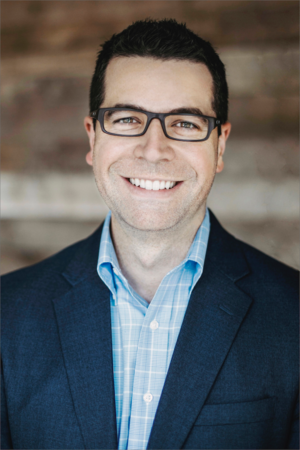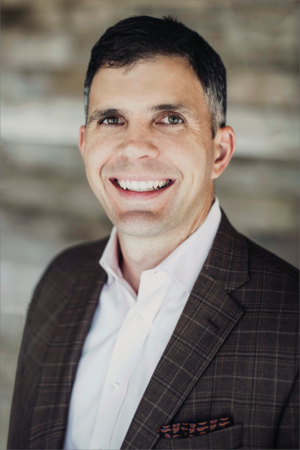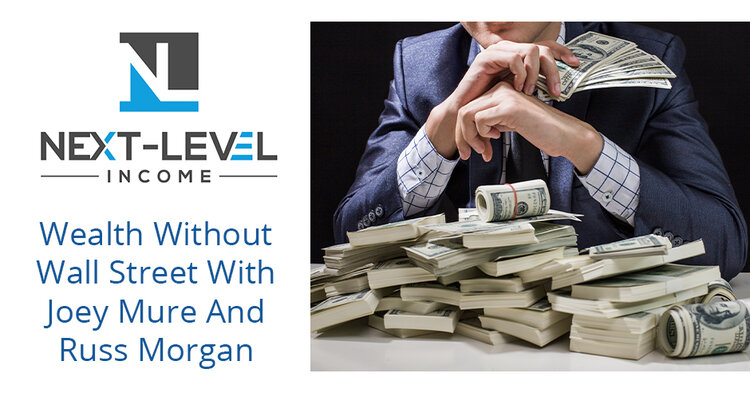Subscribe to The Next-Level Income Show
We Have Been Conditioned To Think That Financial Freedom Has To Wait Until Retirement.
Joey Mure and Russ Morgan from Wealth Without Wall Street join Chris Larsen to share the challenges and motivations they experienced as business owners and how they are helping others pursue financial freedom without relying on Wall Street and the antiquated concept of retirement. They discuss the concept of cash value whole life insurance, 401(k)s, tax strategies, infinite banking, and more. It is time to invest in your future. Follow Joey and Russ as they share their insights on how you can achieve wealth even without Wall Street.
Watch The Episode Here:
Listen To The Podcast Here:
Wealth Without Wall Street With Joey Mure And Russ Morgan
This show, you’re not going to miss. It’s Wealth Without Wall Street with Joey and Russ. Not only is it entertaining, but you’re going to learn how they can help create true financial freedom for you and your family without Wall Street.
—
We have the team from Wealth Without Wall Street, Russ Morgan and Joey Mure. They are serial entrepreneurs and operate nineteen short-term rentals along with several other investment strategies. They love to talk about the challenges and motivations they experienced as business owners and helping others pursue financial freedom. We’re going to be talking about Wealth Without Wall Street and how they can help you develop financial freedom without relying on Wall Street.
—
Gentlemen, welcome to the show.
What’s up, Chris? We’re glad to be here.
I’m excited to have you on the show for many different reasons, Wealth Without Wall Street. Before we get started, could each share about how you got here to where you are now? Also, I love to dive into your background after that.
I’m not sure if I’ll be answering both of those questions or not. I was stuck in the mortgage industry since 2003. I was climbing that corporate ladder. It was all I knew. Financial freedom or financial success was more income. I don’t know if you know much about high commission sales in the mortgage business. It’s a lot easier than I thought it would be to gain this high income but it also came with some collateral damage. I wasn’t present. I don’t know if you can relate, but I was on vacation with my family. It was me with a phone stuck to my hip and it rips me about that all the time. It was on my hip like a nerd with a little Bluetooth earpiece.
I was stuck because if I don’t take this phone call, what do I have in months in terms of income? I got to keep this hamster wheel rolling. The only thing I knew to do with all this excess money was to stay out of debt and/or put money in my 401(k), which I didn’t like. To be honest, I didn’t know much about it. I didn’t understand what it was being invested in. It was volatile, all these things that I didn’t like, and I couldn’t touch it. Russ and I had been friends for several years. In 2009, he finally started to refer business to me. I was like, “Why don’t you start sending me business?” He said, “In order for me to do that, you have to read this book, and by the way, it’s $20.” I’m like, “You asked me to read the book. That’s low-budget to ask somebody to pay for the book you want them to read.”
He’s frugal and cheap. I knew that if he would pay for anything, he’d read it. That was vital. He did.
He’s right. I probably wouldn’t have read it if I didn’t pay for it. I’m glad he did. It set me off on a trajectory like, “This was exactly the thing that I had been missing.” It changed the way I think about money in general. I stopped doing the 401(k) nonsense. I started thinking differently. Over four years, I had changed many different things about the way I thought. I was like, “I’ve got something that’s like a secret here. People don’t know this stuff. Why don’t more people know it?” It was like God was putting his thumb on my back, like, “Why don’t you teach it to him?” I’m like, “I make way over $300,000 a year doing something that I’m good at in the mortgage business. Why would change that?” It became this passion, and it’s like, “I’ve got to get this information out.” We need to be freeing people from this retirement jail idea.
I went home to my wife, who is pregnant with my fourth at the time. We have five girls, but she was pregnant with number four. I said, “I think I’ll leave my career to start from scratch a business with Russ.” I coiled back, and she said, “Joey, you absolutely should do that.” The reality is, I look back on it. At the time, I was shocked that she said that. I asked my wife about that moment, and she said, “Joey, you could have told me you’re going to be a garbage collector, and I would have said the same thing.” No offense, Russ. It was because she honestly felt like I was distracted and far gone from our family and honestly, she didn’t know how our marriage was going to fare. Me being the guy, I was oblivious to this. I thought I was the man. It woke me up to the fact that financial freedom is important and people need to know these things. As far as the journey, that was 2014. Russ and I started Wealth Without Wall Street shortly thereafter. At the end of the day, Russ is like a superhero.
You were making me a superhero. All sudden, you snatched the rug out from under me and said, “I offered you a job, picking up cans or something like that.” Your wife would be like, “Go do it.” I don’t care about what Russ does.
It can be a compliment, too. I want to jump on some of the stuff you said there, but I also want to let Russ share his side of the story. I’ll add this before we go over here, Russ. I formerly left the medical device industry as we do this show. It’s the same thing. I’m making hundreds of thousands of dollars a year. I was on call for 12 or 13 years of the 18 years that I was in this industry. I know exactly what you’re talking about. When I started, we had pagers and beepers because you’re on call.
One thing, in particular, I remember I was sitting there chopping vegetables for dinner, and the hospital called me and said, “We have a patient on the table. We need this product that you have. Nobody else has it here. Can you get here?” I live ten minutes from the hospital. I said, “No problem.” I dropped the knife on the counter, ran out the front door. My wife was playing out with the kids, and I said, “Don’t let the boys near the counter. There’s a chef’s knife sitting there on the counter with the chopped-up vegetables.”
I sped to the hospital, I ran in there, and that was the life. That’s exactly what happens You get in, and it’s like the boiling pot. The funny thing is when I left, nobody called me. The world went on. The surgeries happened. The job got done. I was good at it, but there’s a world outside of that, and that’s what drives us now. Russ, Joey got to hog the initial impression there. I’d love to hear your 1/2 or 2/3 of the story.
I was the financial advisor, so we talked a lot about Wall Street. We beat up on Wall Street. The reason I feel confident in being able to do that is that I was on Wall Street. I was the investment advisor. I got my Certified Financial Planning designation. I was the financial expert. What makes a financial expert?
What?
A rising market.
There are lots of experts.

Wealth Without Wall Street: Stress leads to a lot of medical maladies. Financial is one of those leading indicators to stress.
There is an amazing amount, of experts in the world. I started in 2004. I was riding the wind and it was beautiful. I thought everything was roses, and you couldn’t do bad deals and 2008 happens. All of a sudden, there you are, hands up to the sky, “What am I going to do?” People are coming to you, “What are you going to do? I gave you my money.” I’m like, “Who, me?” Joey was talking about the book I gave him. It was because I was at a conference in 2009 that I experienced the author of the book. Becoming Your Own Banker is the book I sold him. Maybe I was too cheap to give it to him.
You went through a market crash. It was 2009. I don’t blame you.
I bought it for $17. I was looking for a little markup on that. I figured out that the number one investment is in yourself. I truly thought I had been invested in myself, but I’ve been invested in somebody else’s business. While people thought they were investing for the future, they were investing for hope. There I was, trying to help myself and my family. People are looking at me and saying, “How do you help me as well?” I didn’t have the answers. That sent me on a journey. That book was the catalyst to saying, “You got to get control. You got to have access to cash.” The answer to financial freedom isn’t $4 million in a 401(k). It’s more cashflow coming in every single month from a job that you don’t work in and greater than your monthly expenses. It’s simple. Even though that the work to accomplish that is hard, the formula was simple.
I didn’t understand it perfectly at the time and it led me to try and learn what that was, but I was also helping educate people on that process. Joey was a great student. He’s so great that he decided that I wasn’t doing the job well enough that he needed to come and help me. The key to our success is having somebody that I could bounce ideas off of, somebody who looked at the world a little bit differently. It’s been fun to watch us go from a local business here in Birmingham, Alabama, to serving people all over the country and having a podcast that’s even downloaded worldwide and to be in podcasts like yours and being able to have this conversation. That’s my quick story in a nutshell.
That’s the quick version, Chris.
That’s all the time we have for that story because we started late. In October 2009, I started what I call my infinite banking policies. It’s fortuitous timing. My wife was pregnant with our first son. I started learning about all this stuff. Now I have an MBA in Portfolio Management. I know all about Wall Street. I learned all about it during my MBA and decided that there are better ways to do it. This isn’t how the rich do it, and that’s what our mission is now in the Next-Level Income is to teach those lessons, so people know that there are other ways to do it than this accumulation theory and do that.
One thing I want to touch on, Russ, what you said about, “It takes time and discipline to do it.” What’s interesting to me is when you talk about this concept, and we can get into what the foundation of this is with Becoming Your Own Banker. When you talk about this concept of cash value whole life insurance, people say, “It’s too slow. We don’t do that.” It’s the same stuff that a financial adviser will tell you, “You need to be disciplined. You invest every month in the stock market.” The difference is, stock markets are unpredictable, and this vehicle is much more predictable.
I love the way you said that. We have a three-step process that we take people through. The second step in that three-step process is controlling the environment. We’re sitting here and doing this interview, and there’s a lot of storms around us. Our wives are blowing our boats up. They’re concerned, but they’re not in control of the environment around them. There are many people that are reading that are not in control of their environment. That’s why they have stress in their life. That’s why they’re uneasy.
A lot of times, the reason why people were going to those hospitals that you happen to go into is that the stress leads to a lot of medical maladies. Financial is one of those leading indicators to stress. For us, it is much helping people get in control. There are a lot of things that go into that. Understanding the rules of the game, understanding how to play the game, and then being able to dictate the outcomes because they are in control. It’s fun to be able to be on a podcast. I know I’m preaching the choir with you, but those are points that are constantly being brought up to people. Sometimes it’s new information. Maybe it’s being said in a different way that helps that light bulb come on.
I already know the answer to this but share with the readers why Wealth Without Wall Street? What’s the main vehicle? What is at the core of what you all do?
For us, the name Wealth Without Wall street is about pushing against that mindset. We talked about this on a previous show. It’s been sold to us by Wall Street and big banks for generations. It’s not just in our lifetime because what we learned came from our parents. We learned bad habits, and we learned good habits from them but typically, those were stained with this idea and to name a few of those concepts. One is the word defer. When you hear defer, you should run the other way. Defer taxes is bad idea. There are a whole lot of reasons that we probably don’t have time to get into, but all I can say is the stimulus bill.
The $4 trillion has to be paid back at some point. The money they’re giving to you is a fraction of what they’re going to ask in the future. Go ahead and bank on your taxes being way more in the future than they are nowadays. Don’t defer tax. Deferring life. This idea of retirement is a scam. It is built out of the industrial age, and it’s taking something out of service. If you’re reading this podcast, likely, you’re like us. We’re producers. When you’re a producer, you don’t want to stop producing. You don’t want to stop getting value to the world. You’re gifted that by God to give value to others. Why would you ever say, “I’m done. I have nothing else to give,” and hang up the cleats. That’s not even in our DNA. Quit buying that idea and start living now.
We fly in the face of all the vehicles that cause you to defer both life, taxes, and other things. Ultimately, it’s not what you’re after. If people put up that mirror in front of them and say, “What do I want my life to look like?” It’s not like what it is right now. It’s not like what our financial vehicles are out to accomplish. I want to spend time with my kids when they’re 5, 6, 10, 12 and not when they’re 35 or 42. That’s going to be great but what about the times that they want to throw the baseball in the yard or my girls want to go to their golf competitions and things like this? I want to be present with those things and not wishing I could be there.
I have an article, and it blew up on social media when I publish it. It talks about leaving my six-figure career and “retiring.” I hate the word. I don’t let my clients use it. I say, “We don’t talk about that, we talk about that.” You want to be more productive. When you’re financially independent, you can provide that. I know it from firsthand experience because not only did my father die when he was 41, and I was five years old, but I saw my best friend and I identified him on the hospital table when he died at eighteen. When you see that and you realize that life is finite, you have a family of your own and you’re missing those moments, you know there’s a better way to do it. You feel compelled to share that way with other people.
Russ has a great quote. We’re talking about 401(k). I don’t want to beat up 401(k) the whole time, maybe 99% of the time.
Get a couple of more blows in.
By the way, 401(k)s do not allow you to invest in things like what you’re putting together. Quit that crap up. Get access to it. He talks about how some people get drawn into this marketing. This is also a part of that Wall Street mindset, “I get an employer match. That’s a good thing for me because I get an employer match. That’s free money. It’s a 100% return.” Russ says, “You can’t pay me enough to keep me in jail for the next 25 years or whatever your number is.” Don’t buy that stuff.
I’ll never forget, my accountant looked at me years ago and said, “Chris, you need to stop contributing to your 401(k).” I looked back and I’m like, “Are you crazy?” I got a generous match when I was with Medtronic. It ended up working out pretty well in that situation. I was like, “What do you mean I need to stop contributing?” You look at the required minimum distributions. You look at the fact that you can’t use it. I was talking to a client and he’s like, “We have all this money in these plans, but we still feel broke. We feel like we don’t have any control. We feel like we can’t spend $5,000 to paint our house even though they’re worth seven figures on paper.”

Wealth Without Wall Street: Deals exist all around you. You’ve never been in a position to take advantage of them, so you never knew that it existed.

Wealth Without Wall Street: If you’re not passionate about your daily work, do it until you get more passive income and then go do something that you are passionate about.
I would say that my mindset was focused on being a worker and that’s what had been ingrained in me. That’s what I’d watched and observed up to that point. It would have been to seek other people of who I would want my life to look like. If I would have done that, I would have found entrepreneurship through that. The people who were enjoying the life that I would have wanted were entrepreneurs. Even though I didn’t understand what that meant, I would have found it.
You mentioned having an MBA. We can get an MBA in the car ride from work from listening to podcasts like yours, to listening and reading books and other things. One of our mentors was an immigrant to the States. He went to college on a tennis scholarship and he wanted to learn how to speak English, the proper dialect, and to be able to be conversational in English. He went to the library that he was at and they were like, “We don’t have conversational English. We have conversational French, German, Spanish. We don’t have conversational English in an American University.”
What she did at the time is she gave him an audiobook. He didn’t know any different. She was like, “Listen to how they speak and that’ll be it.” It ended up being Tony Robbins. This guy at ten years old is listening to Tony Robbins create a mindset. He became one of the most talented entrepreneurs that we’ve ever met. He sold a business for several billion dollars because he was learning from entrepreneurs. I would say find people that you can learn from who are entrepreneurs. I wish I could have done that myself.
Gentlemen, I appreciate you being on the show. Joey and Russ, check them out at WealthWithoutWallStreet.com. Remember, in the storm of life, if you follow this advice, it can keep your boat much more steady.
—
I hope you found this episode valuable. I have one more thing to give to you. We have a page for my coaching clients where you can get a free copy of my book as well as much more from previous guests on the show. Check out NextLevelIncome.com/coaching to get a free copy of my book, audiobook, and much more. I’ll send you a copy of my book and cover all the shipping costs as a thank you for following the podcast. Also, please like, share, and take 90 seconds to give us a rating on Apple Podcasts.
Important Links:
-
Apple Podcasts – The Next-Level Income Show
About Joey Mure

Joey Mure, Founder and Partner at Wealth Without Wall Street, brings impact, integrity, and generosity to the company every day. He hopes to be remembered as a lover of Jesus, devoted husband, and faithful father. Despite dreaming, around age 10, of becoming an orthopedic surgeon, Joey was in the mortgage business for 11 year before moving to finance in 2014. His personal mentor, Nelson Nash — another man of integrity and impact — is someone Joey deeply admires.
Joey’s strengths in building relationships, asking great questions, and influencing and empowering people with the Wealth Without Wall Street message make him invaluable to the company’s mission. He is relational, impactful, and a true leader. His colleagues would add that he’s thoughtful, funny, and a family man. Many people don’t know that Joey ate a 72-ounce steak dinner once. If he could be anywhere other than work, you’d find him at the beach with his family. And every Sunday morning, they’re worshipping the Lord.
A lifetime goal of Joey’s is to impact the world for Christ; and a more near-term goal is to purchase a beach house for my family. Aside from Wealth Without Wall Street, Joey listens to Sharran Srivatsaa’s Business School podcast and Donald Miller’s Building A StoryBrand podcast. He’s happiest when he’s traveling with his wife or golfing with his girls.
He cares deeply about Campus Outreach, Cru, Navigators, Sav a Life, Lifeline Adoption, and Young Business Leaders. His aims to live by the words “Trust in the Lord with all your heart and lean not on your own understanding. In all your ways acknowledge Him and He shall direct your path (Prov 3:5-6).”
About Russ Morgan
Wealth Without Wall Street’s Founder and Partner, Russ Morgan, is known as “The Idea Guy.” Russ began his professional career as an investment advisor in 2004 after graduating from Auburn University — a slight foray from 10-year-old Russ’ dream of becoming a professional baseball pitcher. After obtaining his CFP in 2008, Russ started IBC the following year, and eventually went on to found Wealth Without Wall Street in 2015.

Russ’ mother was an enormous inspiration for him growing up. As a single mother with two young children, she took a rigorous, accelerated track through college while working multiple jobs, all with the goal of bettering her children’s lives. When he’s not working, you can wave to Russ on a boat at the lake pulling his kids around on a tube. And on Sunday mornings, he’s probably rushing to church with his family … only 10 minutes late.
Russ’ creativity, fresh ideas, and knack for problem-solving are indispensable assets to his role at Wealth Without Wall Street. Russ would describe himself as competitive, creative, and passionate; his colleagues would likely add that he is helpful and abundant. Russ hopes to be remembered as an innovator who loved to teach others, and he has a goal to one day serve in the mission field. Finishing the book is another more near-term goal.
Aside from Wealth Without Wall Street, Russ learns from the Business School podcast with Sharran Srivatsaa and Donald Miller’s Building A StoryBrand book and podcast. Aspire Movement, Campus Outreach, and Young Business Leaders are three causes near to Russ’ heart. Russ in one motto? “Just try!”
Love the show? Subscribe, rate, review, and share!
Join the Next- Level Income Show Community today:
Tagged: Wall Street, Wealth Without Wall Street, Retirement Jail, Financial Freedom, Deals, Infinite Banking, Group 2


Subscribe to The Next-Level Income Show